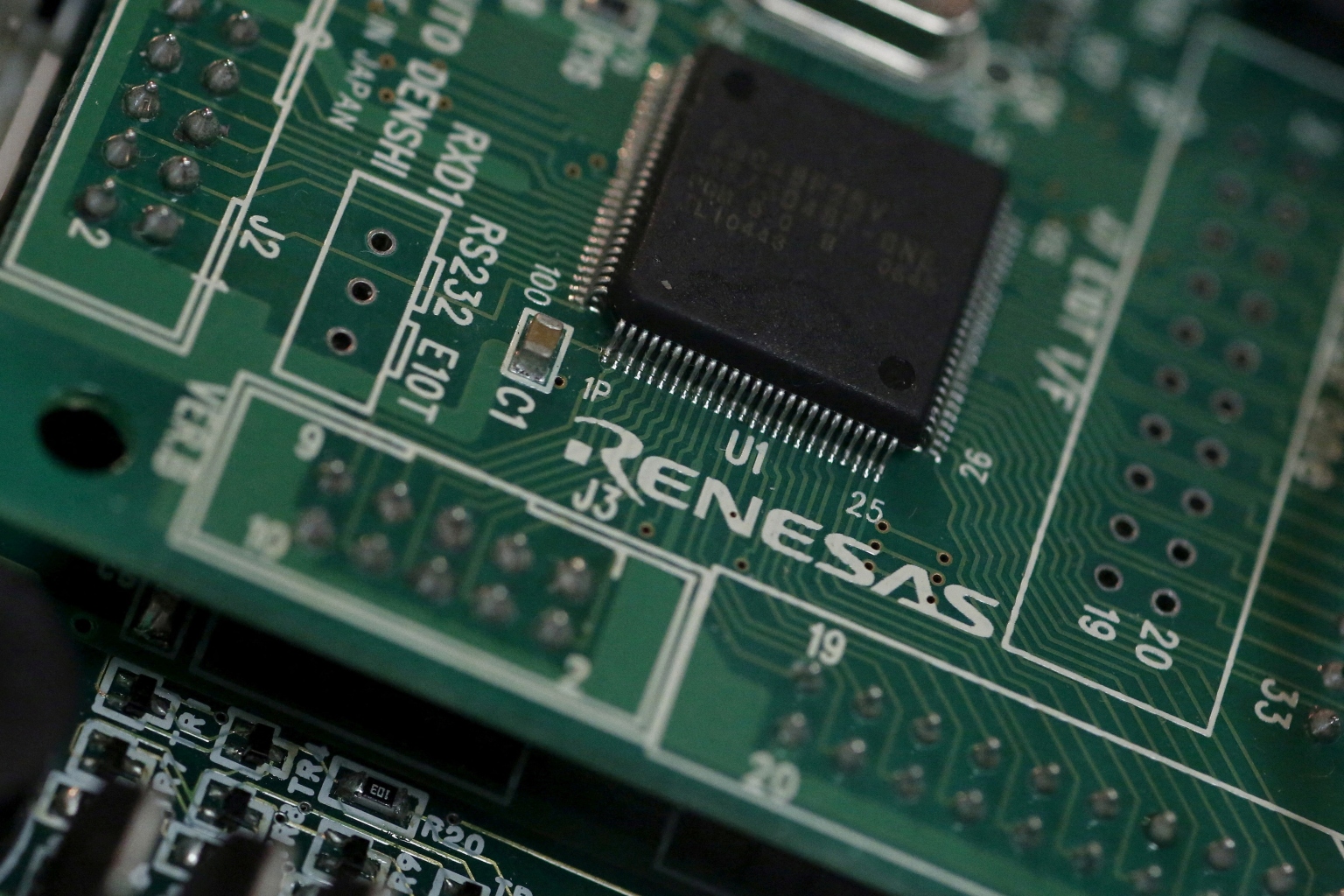Biden administration releases plan for US$50 billion investment in chips
Sign up now: Get ST's newsletters delivered to your inbox

Semiconductors are crucial components in mobile phones, pacemakers. coffee makers, and are the key to advanced technologies.
PHOTO: REUTERS
WASHINGTON - The Department of Commerce on Tuesday unveiled its plan for dispensing US$50 billion (S$70.3 billion) aimed at building up the domestic semiconductor industry and countering China, in what is expected to be the biggest United States government effort in decades to shape a strategic industry.
About US$28 billion of the so-called CHIPS for America Fund is expected to go towards grants and loans to help build facilities for making, assembling and packaging some of the world's more advanced chips.
Another US$10 billion will be devoted to expanding manufacturing for older generations of technology used in cars and communications technology, as well as speciality technologies and other industry suppliers, while $11 billion will go towards research and development initiatives related to the industry.
The department is aiming to begin soliciting applications for the funding from companies no later than February next year, and it could begin disbursing money by next spring, Commerce Secretary Gina Raimondo said in an interview.
The fund, which was approved by Congress in July, was created to encourage US production of strategically important semiconductors and spur research and development into the next generation of chip technologies.
The Biden administration says the investments will lessen dependence on a foreign supply chain that has become an urgent threat to the country's national security.
"This is a once-in-a-lifetime opportunity, a once-in-a-generation opportunity, to secure our national security and revitalise American manufacturing and revitalise American innovation and research and development," Ms Raimondo said. "So, although we're working with urgency, we have to get it right, and that's why we are laying out the strategy now."
Trade experts have called the fund the most significant investment in industrial policy that the US has made in at least 50 years.
It will come at a pivotal moment for the semiconductor industry.
Tensions between the US and China are rising over Taiwan, the self-governing island that is the source of more than two-thirds of the most advanced semiconductors.
Shortages of semiconductors have also helped to fuel inflation globally, by increasing delivery times and prices for electronics, appliances and cars.
Semiconductors are crucial components in mobile phones, pacemakers and coffee makers, and they are also the key to advanced technologies such as quantum computing, artificial intelligence and unmanned drones.
In its strategy paper, the Commerce Department said that the US remained the global leader in chip design, but that it had lost its leading edge in producing the world's most advanced semiconductors.
In the past few years, China has accounted for a substantial portion of newly built manufacturing, the paper said.
The high cost of building the kind of complex facilities that manufacture semiconductors, called fabs, has pushed companies to separate their facilities for designing chips from those that manufacture them.
Many leading companies, such as Qualcomm, Nvidia and Apple, design chips in the US, but they contract out their fabrication to foundries based in Asia, particularly in Taiwan. The system creates a risky source of dependence for the chips industry, the White House says.
The department said the funding aims to help offset the higher costs of building and operating facilities in the US compared with other countries, and to encourage companies to build the larger type of fabs in the US that are now more common in Asia.
Domestic and foreign companies can apply for the funds, as long as they invest in projects in the US, though the Bill prohibits providing money to any "foreign entity of concern", a list that would include all companies from Russia and China.
To receive the money, companies will need to demonstrate the long-term economic viability of their project, as well as "spillover benefits" for the communities they operate in, such as investments in infrastructure and workforce development, or their ability to attract suppliers and customers, the department said.
The Commerce Department is setting up two new offices housed under the National Institute of Standards and Technology to set up the programmes.
One of the department's biggest challenges will be ensuring that the government funds add to, rather than displace, money that chipmaking companies were already planning to invest. Companies including GlobalFoundries, Micron, Qualcomm and Intel have announced plans to make major investments in US facilities that may qualify for government funding.
The chips Bill specifies that companies that accept funding cannot make new, high-tech investments in China or other "countries of concern" for at least a decade, unless they are producing lower-tech "legacy chips" destined to serve only the local market.
Speaking at the White House on Tuesday, Raimondo said the department was in the process of hiring about 50 people to review the applications and that they intended to negotiate for "every nickel" of taxpayer money.
She said companies would have to prove that the funding was "absolutely necessary" to make their investments. "This isn't money to make them more profitable or pad their bottom line," she added. NYTIMES


